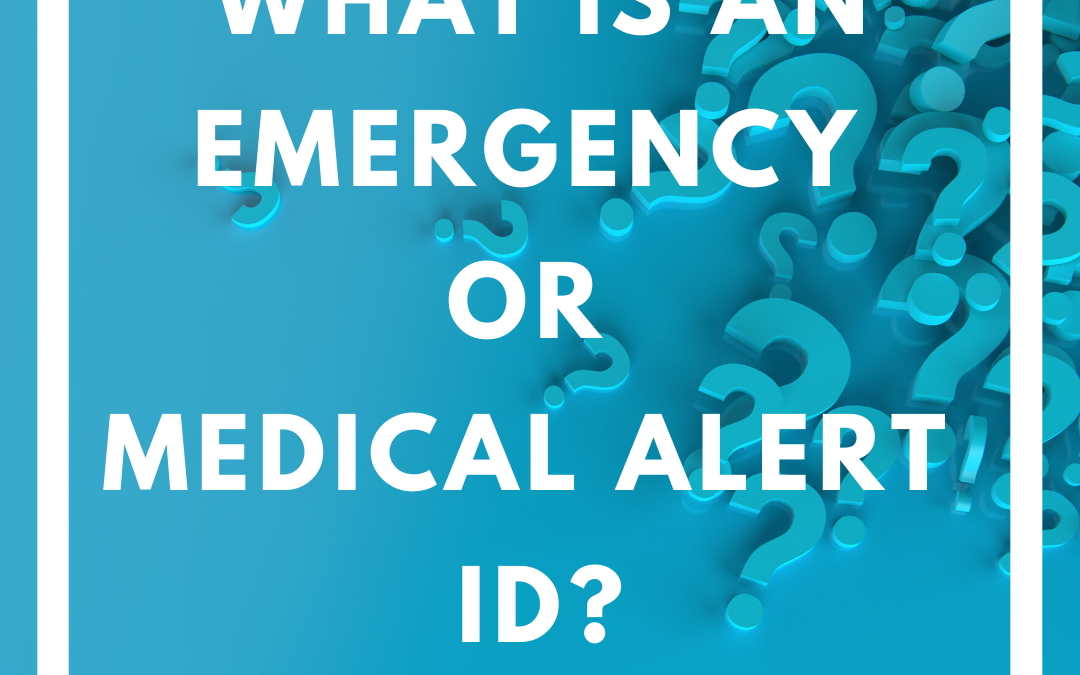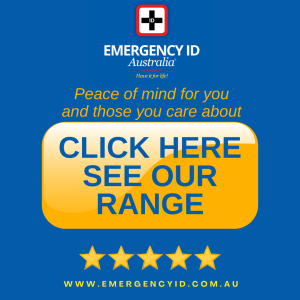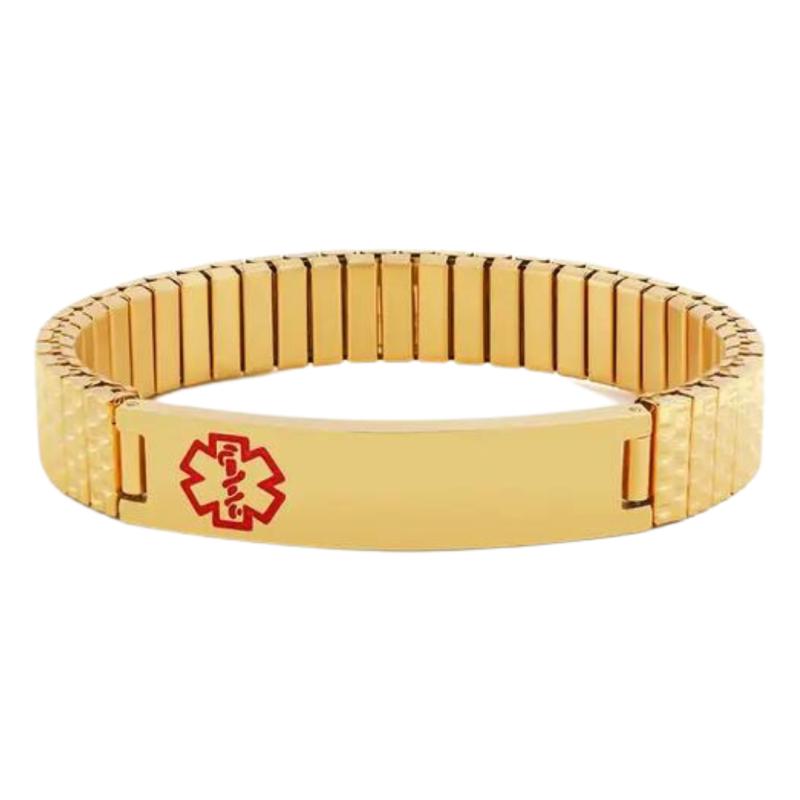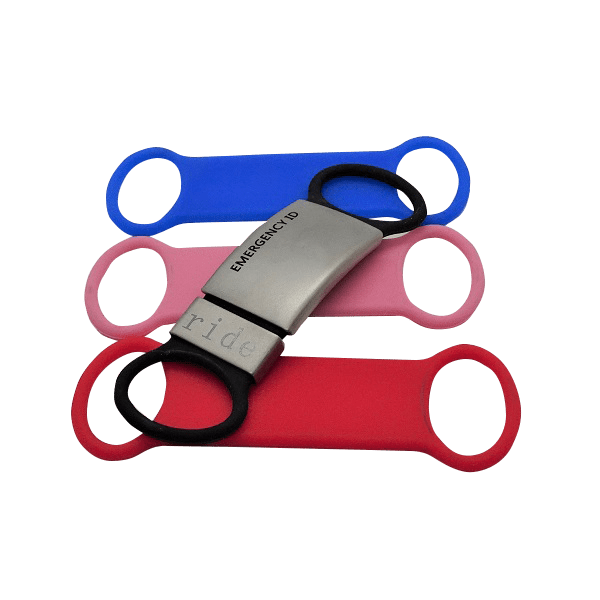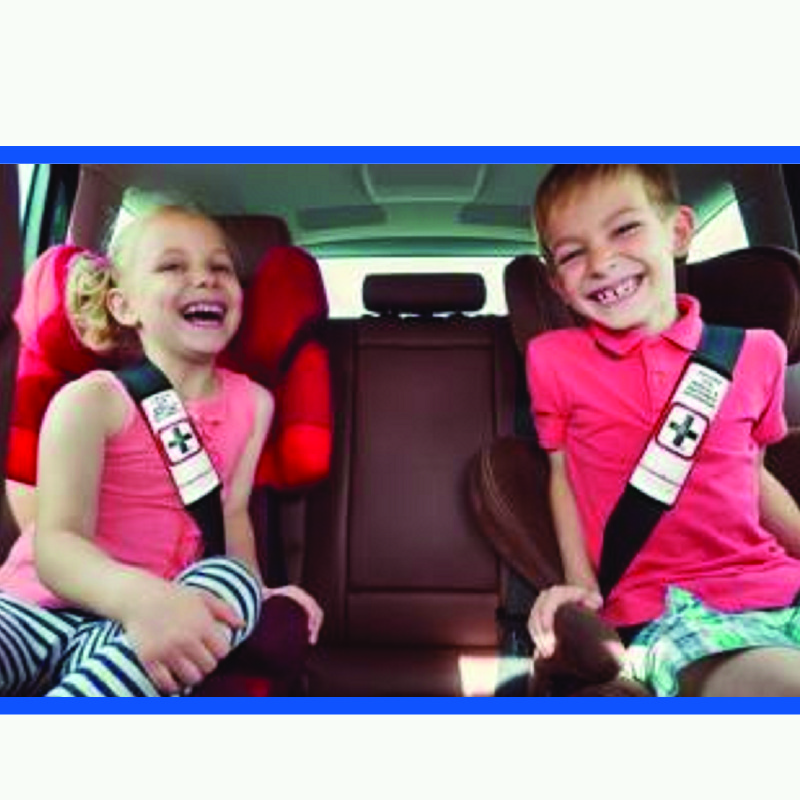What is an emergency or medical alert ID?
Emergency IDs are items you wear or carry that could save your life, reduce medical errors, and advise who YOU want to be notified in an emergency.
Medical IDs can greatly assist those treating you by providing your vital information. It’s peace of mind for you and your loved ones.
What can be engraved?
Anything you request:
- Medical conditions
- Medication and food allergies
- Medications you are taking
- Emergency contacts
- Anything you think could assist first aiders, paramedics, and medical professionals
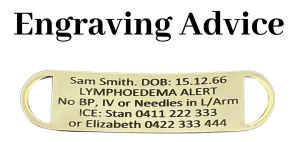
Who should wear/carry an emergency ID?
Anyone can wear/carry an emergency ID.
Here are some conditions:
- Food, medication, or Insect allergies
- Autism
- Heart disease (e.g., angina, arrhythmia, atrial fibrillation, pacemaker)
- Stroke
- Cancer
- Diabetes
- Asthma
- Chronic obstructive pulmonary disease (COPD)
- Kidney disease
- Blood disorders
- Alzheimer’s / Dementia / Memory Impairment
- Blood thinners / Anticoagulants (Coumadin/Warfarin)
- Emphysema / Breathing disorders
- Rare diseases
- Epilepsy / Seizure disorder
- Hearing, sight, or mentally impaired
- Surgery and transplant patients
- Special needs children
- Hypertension – High Blood Pressure
- People taking multiple medications
- PTSD and other mental health issues
- Anything at all!
Do emergency responders look for a medical ID?
Yes, first aiders, emergency services, and medical professionals are trained to look for medical IDs.
Australian’s have been wearing them since WW2. You can find a handmade medical ID bracelet on display at the Australian War Memorial, worn by an Australian Ambulance Officer.
They are now worn worldwide, and Emergency ID Australia is a leader in their field, with the largest and most diverse range available worldwide.
When should I wear my medical ID?
24/7. Wear your emergency ID as often as possible. Most of our products are suitable for 24-hour wear, even in water—for example, showers, baths, pools, oceans, and spas. You never know when you will have a medical incident or emergency, so wear it as often as possible.
What are the benefits of emergency ID?
In an emergency, minutes matter! You may not be able to speak for yourself, but an emergency ID can speak for you.
- Take out the “guesswork” and clearly show current medical conditions, as symptoms of common ailments can be easily misdiagnosed.
- First responders can quickly obtain details of your emergency contact. That way, you are not left alone in the hospital, as medical staff can inform loved ones.
- Prompt diagnosis is critical to effective treatment.
- A brief description of vital medical information engraved on your emergency ID ensures appropriate and timely medical care.
- Wearing an emergency ID protects against potentially harmful medical errors. “In Australia, medical error results in as many as 18 000 unnecessary deaths, and more than 50 000 patients become disabled each year.” Source Australian Medical Error Action Group.
- You are assisting those trying to do their best to help you by giving necessary, potentially life-saving information.
What is the cost of an emergency ID?
Emergency IDs range from as little as $2.95 for a fold-up wallet Emergency ID Card to just over $100 for a gold-plated bracelet which can be worn 24/7. There is something for everyone’s budget.
Emergency ID Australia is an NDIS provider, so if you are an NDIS participant, you can purchase ANY of our products through NDIS.
All prices, and full details, are available on our website.
NO unnecessary membership or yearly fees. All Custom Engraving is FREE.
100% Australian Founded, Owned & Operated.
Communicating VITAL medical & emergency information when you can’t.
Emergency ID Australia : Shop Medical Alert IDs
“Medical Identification Tags
A person with a serious medical condition such as diabetes, a drug allergy, or a heart condition should carry information about the condition on a necklace or bracelet, or on a card that can be carried in a pocket or wallet, so that proper care can be given in an emergency.
Be sure to check for a medallion or card if you find yourself in the role of rescuer. If you or a member of your family has a life-threatening medical condition, obtain a medical identification tag or medallion from your local pharmacy and wear it at all times.”
Harvard Health Publishing – Harvard Medical School
Source Emergencies and First Aid – Medical Identification Tags – Harvard Health



